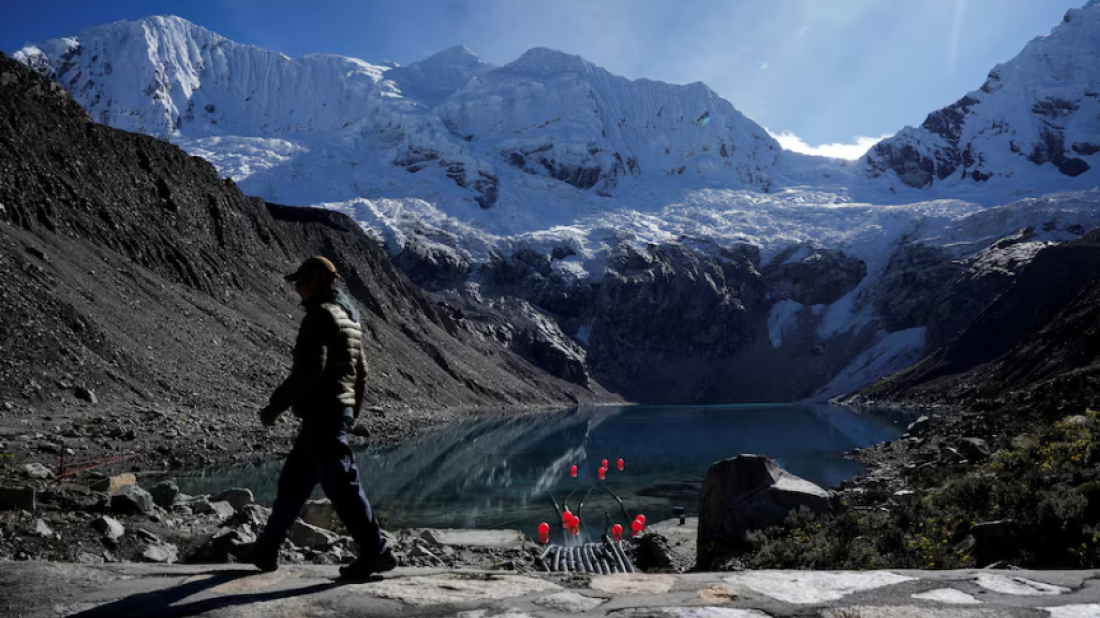Israeli FM Gideon Saar to attend Trump's first Board of Peace meeting on Thursday, official says
Israel’s Foreign Minister Gideon Saar will attend U.S. President Donald Trump’s first Board of Peace meeting of leaders in Washington on 19 Februa...

A German court dismissed a Peruvian farmer’s case against energy giant RWE, but the ruling is being celebrated as a turning point in climate litigation, recognizing companies’ potential liability for emissions—despite a technical loss.
After nearly ten years of legal proceedings, a Peruvian farmer’s case against Germany’s RWE over climate damages has officially ended—with the court dismissing the claim. But despite the legal defeat, climate activists and legal experts are calling the outcome a landmark for future climate justice efforts.
The case, filed by Saul Luciano Lliuya, centered on the growing risk of flooding in his hometown of Huaraz due to glacial melt linked to global warming. Lliuya argued that RWE, as one of the world’s major emitters, should be held partially responsible—specifically for 0.5% of the cost of flood defenses, mirroring the company's share of global emissions since the Industrial Revolution. The amount sought was modest: around $17,500.
On Wednesday, the court dismissed the case without appeal, citing that the flood risk to Lliuya’s home over the next 30 years was estimated at only 1%—insufficient grounds to proceed.
Still, environmental groups and legal analysts say the case broke new ground. The court acknowledged, for the first time, that companies can be held liable under civil law for their share of climate damages—even if their emissions occurred far from the affected area.
“This is a really historic decision,” said Noah Walker-Crawford from the Grantham Research Institute at the London School of Economics. “They established a legal duty—a principle of corporate climate liability—which no other court has ever done in this way.”
The court confirmed that Germany’s Civil Code applies across borders in such cases and that civil courts can rule on transnational climate claims. It also emphasized that holding a government-issued permit does not exempt companies from legal responsibility for harming others through emissions.
The judges went further, asserting that climate science has long been clear enough to establish foreseeability. The ruling cited key moments in scientific history, such as Charles Keeling’s CO₂ monitoring in 1958 and the 1965 U.S. Presidential report that linked fossil fuel use to rising atmospheric carbon dioxide.
The court affirmed a direct, linear relationship between emissions and climate damage, stating that the complexity of climate science does not preclude legal responsibility.
RWE, for its part, downplayed the ruling. A company spokesperson said the decision does not set a precedent in the sense understood in the UK legal system, and noted that other regional courts in Germany have taken different legal views. The company maintained that it had complied with all applicable laws and argued that climate policy should be handled by governments, not courts.
Despite the final dismissal, climate advocates say this case could open the door for others to sue multinational polluters—potentially shifting the legal landscape for global climate accountability.
Europe heads into the Munich Security Conference, on Friday (13 February), amid deepening unease over U.S. policy, as President Donald Trump’s hard-line stance on defence, trade and territory fuels doubts about Washington’s long-term commitment to transatlantic security.
American figure skating star Ilia Malinin endured a dramatic collapse in the men’s free skate on Friday night, falling twice and tumbling out of medal contention at the Milan Cortina Winter Olympics as Kazakhstan’s Mikhail Shaidorov surged to a surprise gold medal.
“Respected and feared globally,” U.S. President Donald Trump told troops at Fort Bragg on Friday (13 February), framing America’s renewed strength against to mounting pressure on Iran amid stalled nuclear talks.
Dubai-based global ports operator DP World said on Friday that its long-serving chairman and chief executive, Sultan Ahmed Bin Sulayem, has stepped down following mounting pressure linked to alleged ties to disgraced financier Jeffrey Epstein.
Speaking at Munich Security Conference, Ukrainian foreign minister Andrii Sybiha calls for decisive steps ahead of expected Geneva talks
The administration of U.S. President Donald Trump on Thursday (12 February) announced the repeal of a scientific finding that greenhouse gas emissions endanger human health, and eliminated federal tailpipe emissions standards for cars and trucks.
Tropical Cyclone Gezani has killed at least 31 people and left four others missing after tearing through eastern Madagascar, the government said on Wednesday, with the island nation’s second-largest city bearing the brunt of the destruction.
Rivers and reservoirs across Spain and Portugal were on the verge of overflowing on Wednesday as a new weather front pounded the Iberian peninsula, compounding damage from last week's Storm Kristin.
Morocco has evacuated more than 100,000 people from four provinces after heavy rainfall triggered flash floods across several northern regions, the Interior Ministry said on Wednesday.
Greenland registered its warmest January on record, sharpening concerns over how fast-rising Arctic temperatures are reshaping core parts of the island’s economy.
You can download the AnewZ application from Play Store and the App Store.

What is your opinion on this topic?
Leave the first comment